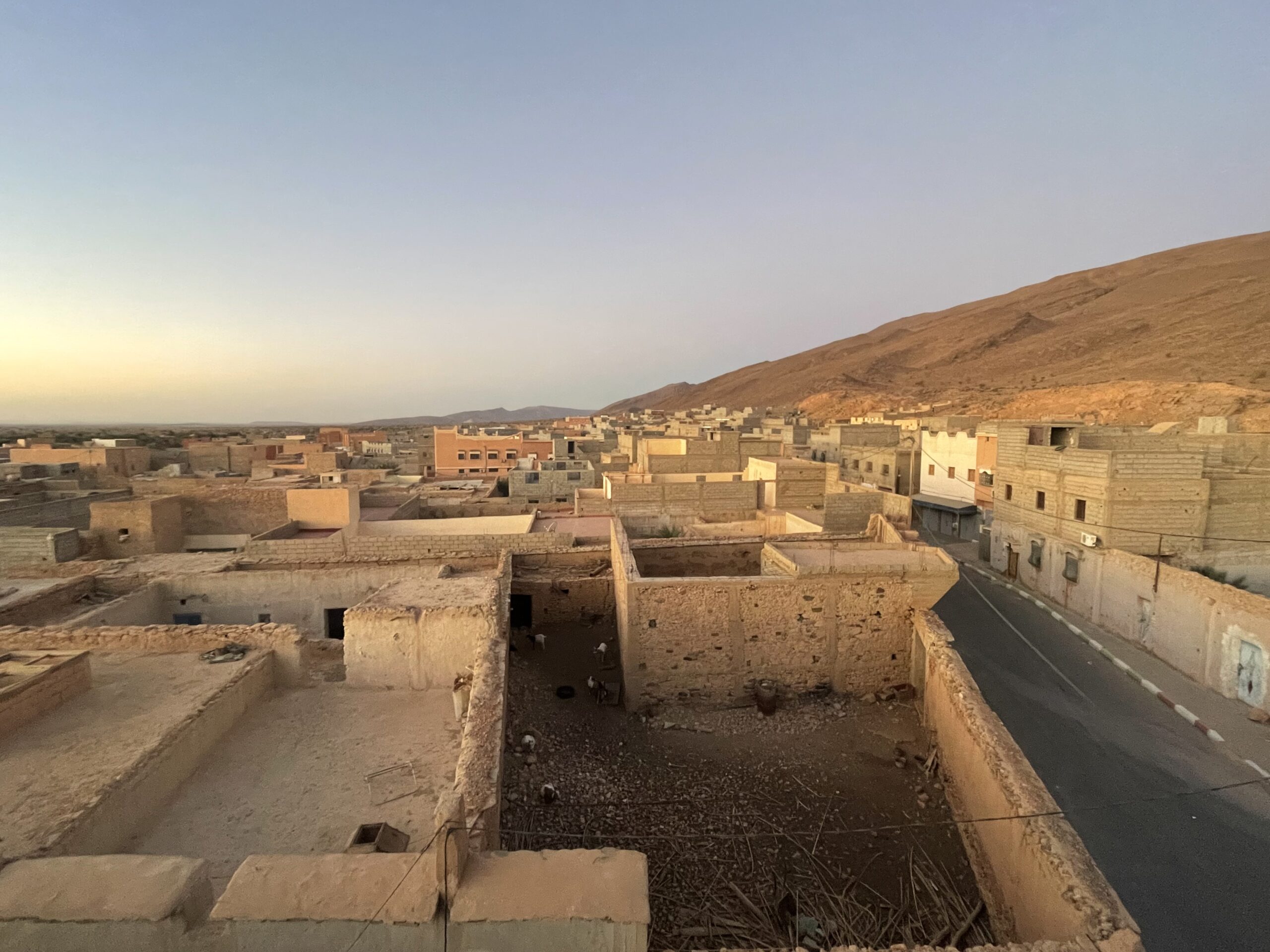I wake in the morning to have my overnight oats and coffee to build the stamina for this foray into open air markets. Today is souk day… What is a souk you may ask? Let me tell you..
The anticipation of Tuesday morning comes, something in the air as the trucks drive past my window heading a few blocks away to the open air souk.. The gathering of everyone in a large triangle shaped parking lot of sorts for the weekly grocery shopping.
There are both veggies, fruits, and various household items. Traveling salespeople-met one women from Senegal selling jewelry and incense- display their wares. You never know what will be there one day to the next except for a small assortment of fruits and veggies. No meat. Lots of spices (though we have a separate spice haunt aka really small store) and various beans and oatmeal etc.
Never takes fewer than 2 hours with the stopping and socializing. The motorbikes, motor carts, trucks, and daring passenger cars try to pass through the throng of focused people shopping for their weekly groceries. Unlike the U.S. there are no supermarkets in my village. Sure there are certain hanuts that have a fridge or two for a few perishable items like yogurt and milk but this is no the place for one stop shopping. Here people gather and shop weekly for the day, mainly women as I think this is the women’s only Souk or at least mainly women. There are mainly men selling the produce and a few others coming to shop or socialize with their friends. Wednesday is the Souk day for the other part of town. I go there less often due to distance and size but that one does have meat. With my host family I did visit the bitcher for chicken. You purchase the chicken alive and then take it over to another location where they.. as another PC friend said in an endearing way, ‘unalive it’. I have not ventured to the butcher since living alone… I imagine I will eventually but that exchange of Darija will require a bit more preparation.
How does this souk shopping work? Well nothing is labeled, you go up and get a plastic bucket by the seller. You fill it with what you want and bring to the man sitting at the scale. Usually things are by 1- 2 kilos pricing. You tell him the amount you want, he measures, removes or adds more of the item to hit the limit. You typically have to jostle around as multiple people also try to do the same and get the best produce available. It is overwhelming even more so as they speak Tashlheit (the local dialect) and the numbers you were taught in Darija along with the currency of Dirham is presented to you in Ryals which means you need to divide by 20 to get to Dirhams.
This kind of shopping is harder to do with the crush of people around you all trying to get what they need for the week. This is also why I still attempt to go with my host sisters (HS). They are very astute making sure the sellers give the foreigner the right amount of change back. I’ve yet to be ripped off under her watchful eye. Though it is interesting because often times the women will leave their expanding bags of food at different sellers along the way as to not be weighed down. After done socializing they return to gather their bags and head out. It is a very trusting environment, not something as commonly done in the U.S.




Leave a Reply